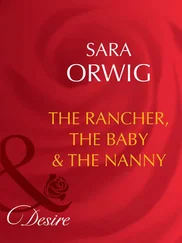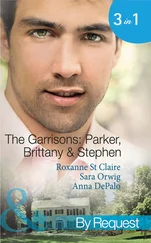Sara Alexi - The Illegal Gardener
Здесь есть возможность читать онлайн «Sara Alexi - The Illegal Gardener» весь текст электронной книги совершенно бесплатно (целиком полную версию без сокращений). В некоторых случаях можно слушать аудио, скачать через торрент в формате fb2 и присутствует краткое содержание. Год выпуска: 2012, Издательство: Oneiro Press, Жанр: Современная проза, на английском языке. Описание произведения, (предисловие) а так же отзывы посетителей доступны на портале библиотеки ЛибКат.
- Название:The Illegal Gardener
- Автор:
- Издательство:Oneiro Press
- Жанр:
- Год:2012
- ISBN:нет данных
- Рейтинг книги:3 / 5. Голосов: 1
-
Избранное:Добавить в избранное
- Отзывы:
-
Ваша оценка:
- 60
- 1
- 2
- 3
- 4
- 5
The Illegal Gardener: краткое содержание, описание и аннотация
Предлагаем к чтению аннотацию, описание, краткое содержание или предисловие (зависит от того, что написал сам автор книги «The Illegal Gardener»). Если вы не нашли необходимую информацию о книге — напишите в комментариях, мы постараемся отыскать её.
The Illegal Gardener — читать онлайн бесплатно полную книгу (весь текст) целиком
Ниже представлен текст книги, разбитый по страницам. Система сохранения места последней прочитанной страницы, позволяет с удобством читать онлайн бесплатно книгу «The Illegal Gardener», без необходимости каждый раз заново искать на чём Вы остановились. Поставьте закладку, и сможете в любой момент перейти на страницу, на которой закончили чтение.
Интервал:
Закладка:
“Wow, does he have a brother for me? He could help with my garden.”
“Ha ha, no. Find your own house boy.”
“House boy. Ooo Juliet, that sounds like fun!”
“Well, I had to shape him up a bit at the start, you know how it is, but he is working out just fine.” Juliet is laughing. “But seriously, he has been great. When it rained, obviously he couldn’t work outside, so he came in and cleaned out the old kitchen cupboards that had been just left. He laid the fire, even cleaned my bathroom without me asking.”
“Wow, he sounds like a treasure.”
“He also seems like a pretty nice guy too. Quiet, a bit shy perhaps, compassionate, but he has his pride, sometimes too much.”
“I like men that are proud, a little bit arrogant, that whole masculine, caveman thing. So is anything brewing or can I come over and grab him for myself?”
“He’s an illegal Pakistani immigrant.”
“So?”
“So he is married.”
“Ahh, so if he wasn’t married, would anything be brewing?”
“Michelle, sometimes you think the whole world thinks like you.”
“Let me get this straight. You have a strong, determined guy who gets on with life, who, even though he does your house work without being asked, maintains his pride, and you don’t know if something would be brewing if he wasn’t married. I must deduce you have heatstroke, Juliet.”
“He is shorter than me.”
“Good reason, that and the married thing. Stay clear.”
“Have you got anything to actually say to me or have you just rung to annoy me?”
“Just to annoy you.”
The silence that follows indicates neither of them knows what to say.
“So is he there now?”
“No, he didn’t show up today.”
“Why?”
“I’m not sure. Yesterday I kind of let rip at him. I felt he was in my way or something, but we made up and in the end it was nice. But I think I must have done something more than I thought. Anyway, he is not here.”
“Ahh. That sounds a shame. Why did you let rip again?”
“I don’t really want to talk about it. OK?”
“Are you expecting him tomorrow?”
“I don’t know. I’ll just have to wait and see if he turns up. If he doesn’t, I was wondering if I should go to the village square and see if he is waiting for work there. I don’t know what I would say to him.”
“How about, ‘Please come home, you are the best house boy I have ever had.’” Michelle seems to find it as funny as Thomas did. Juliet smiles, laughs a little even.
Their conversation draws to a natural conclusion. Juliet finds the wine in the kitchen and pours herself a glass.
As if timed for maximum effect, the bottle is empty. The next town’s supermarket will be closed by now. Juliet looks through the glass at her sitting room encased in emerald. The peeling paint and years of wear are unnoticeable through her meridian telescope, but Juliet is not cheered up. She picks at the label. It looks familiar. Marina comes to mind, and there in her mental background of cigarette cartons and shepherd crooks, she sees the wine bottle label, a row of them, top shelf, by the plastic flowers.
Invigorated, Juliet pulls on her trainers and sets off, even though it is late, to the corner shop.
Chapter 7
“And, thank goodness, she has not met anyone new. I did not want her to meet American boy. I have no problem with American boys but if she married an American boy she would live in America! So now she is home, where a daughter belongs. I can pray for her to meet a nice boy, just like I pray for her big sister to meet a nice boy.” Marina, with a nod, breaks off her conversation with a lady dressed in black, who smells of sheep dung and who nods in return and leaves. The waiting dog outside yelps at joy of being reunited with his dung-smelling mistress, and the two head out of the village towards the hills.
“Hello, Tzuliet.” Marina struggles with the pronunciation.
“Hello, Marina. Could I have a bottle of that wine, please? The one on the top shelf next to the flowers.”
Marina comes from behind the counter, her weight impeding at the beginning but helping the momentum as she gets going. She waddles toward the entrance and starts to take beer bottles out of a crate by the door, bending from the hips.
“Oh, are you busy? Shall I come back?” Juliet is not sure what to make of Marina’s actions.
“Why you come back? I am getting your wine now.” She continues to unload the crate, one bottle following the next until it is empty. She pauses for breath. After turning the crate over, she pushes it with her foot behind the counter and, using the counter-top as support, steps onto the crate to reach the wine.
“Oh, I would have been happy to have got it for you.”
Marina waves a dismissal. After the exertion of reaching the wine, she sits down and puts her feet up on the crate. “You will be going to church tonight?”
Juliet is about to ask why but the decorated candles around the shop tell her that Terrance’s talk of English Easter has confused her. It is Saturday, midnight Mass. Tomorrow is Greek Easter. She becomes alert.
“Yes, of course.” Juliet chooses the least decorated candle within arm’s reach.
An ember spits out from the fireplace. It is the call to action Juliet needs to raise herself from the comfort of the wine, cat, and comfy chair. She pats the ember into the rug before she flicks the rug by its edge to bounce the ember back onto the fire.
Once up on her feet, the spectacle of the Greek midnight Mass calls her to the village square in front of the church. She makes a quick search for her candle. It is a Barbie candle complete in its box with a Barbie badge, pink ribbons, and a Barbie plastic drip catcher. Juliet strips the candle of its adornment, gives the ribbons to the cat to play with, stuffs her feet into her permanently laced-up trainers, grabs her coat and sets off.
Closing her gate behind her, she can see her neighbours down the lane, the elderly walking at a somber pace, the young ones running around in the excitement. Juliet keeps her distance but is pleased to be able to observe. The excitement of the new culture takes Juliet into a world of undiscovered possibilities. She is alone and grinning.
As the lane end joins the main street of the village, people migrate from all directions towards the church. Each person carries an unlit candle ready for the moment of resurrection, the light of Christ. Each carries a hope for the year to come, following the end of Lent. Each wishes for the health of their family, with a bit of happiness thrown in, the lit candle carried all the way home as something to wish upon.
As Juliet nears the church, the street fills from every direction until they reach the square as one, brought together by an alliance of belief.
The church is full to overflowing, the wide, approaching steps a dense amalgamation of families, friends, and farming staff. A tingle of expectancy oscillates through the waiting throng. People coming and going, some have obviously been there for the duration, shifting from foot to foot. The microphoned singing drone of the ‘ psaltis’ - cantor - sends the words and prayers reverberating in the church entrance, echoing off buildings, seeking out every street and lane, and seeping into every corner of the surrounding orange groves. Rising and lowering, the nasal intone increases tempo and urgency until, finally, finally, Christ has arisen. Kali Anastasi, Good Resurrection.
The collective energy in the square increases. Children run around before being pulled to attention, and then the hush as the first light appears from the church doorway. Candle to candle, the light of Christ passes to the waiting crowd and the murmur, ‘Christ is risen’ on the giving and ‘He surely is’ on the receiving. The flame passes from neighbour to friend, to child, to worker. The flickering candles fan outward from the door, each candle lights two or more behind it, the square pinpricked with dancing light, the beginnings of a ripple effect which will spread out through the village.
Читать дальшеИнтервал:
Закладка:
Похожие книги на «The Illegal Gardener»
Представляем Вашему вниманию похожие книги на «The Illegal Gardener» списком для выбора. Мы отобрали схожую по названию и смыслу литературу в надежде предоставить читателям больше вариантов отыскать новые, интересные, ещё непрочитанные произведения.
Обсуждение, отзывы о книге «The Illegal Gardener» и просто собственные мнения читателей. Оставьте ваши комментарии, напишите, что Вы думаете о произведении, его смысле или главных героях. Укажите что конкретно понравилось, а что нет, и почему Вы так считаете.












